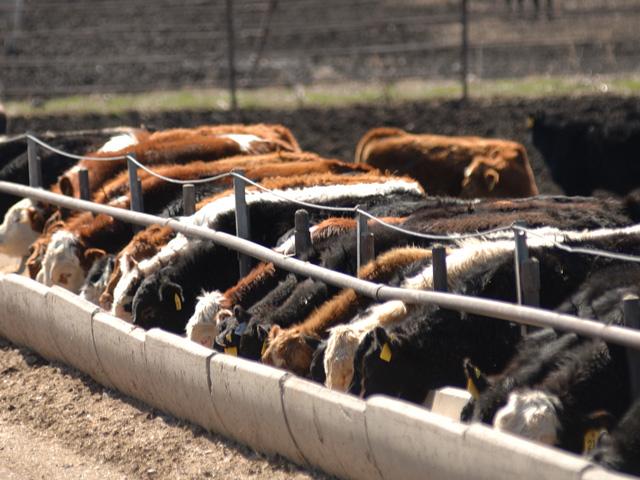NCBA: Stop Imports of Brazil Fresh Beef
NCBA Renews Call to Stop Brazilian Fresh Beef as US Imports Surge
LINCOLN, Neb. (DTN) -- With a 131% increase in beef imports from Brazil into the U.S. reported in 2021 and a continuation of that pattern early in 2022, the National Cattlemen's Beef Association on Monday renewed its call for U.S. Agriculture Secretary Tom Vilsack to suspend fresh beef imports from Brazil.
The surge of imports triggered a temporary tariff safeguard of 26.4% applied to Brazilian beef imports for the rest of 2022.
While a temporary tariff increase "may discourage" further fresh beef imports from Brazil, it does not address the underlying concern over Brazil's "repeated failure" to adhere to international animal health and food safety standards, NCBA said in a news release this week.
"We are, once again, calling on Secretary Vilsack to suspend fresh beef imports from Brazil, because of that country's long history of failing to report BSE (bovine spongiform encephalopathy) cases in a timely manner," NCBA Vice President of Government Affairs Ethan Lane, said in a statement.
"It's incredibly disappointing to have our science-based recommendations met with no notable response by the U.S. Department of Agriculture. As beef imports from Brazil continue to rise, we urge USDA to reconsider their stance on Brazilian beef and take necessary action to safeguard the integrity of the entire U.S. food supply chain."
In November 2021, U.S. cattle groups were united in pressing the Biden administration to stop beef imports from Brazil after the World Organization for Animal Health said Brazil took more than eight weeks to report two confirmed cases of atypical BSE.
The OIE requires countries to report within 24 hours any animal disease event that could be of international concern for public health emergencies.
P[L1] D[0x0] M[300x250] OOP[F] ADUNIT[] T[]
Last year, Creutzfeldt-Jakob disease was detected in two people in Brazil. The CJD, according to Brazilian agricultural ministry officials, was sporadic in the cases and not caused by eating beef or beef byproducts.
Classic BSE has been linked to variant CJD in people. That version of BSE largely is caused by feed contaminated with the infectious prion agent, such as meat-and-bone meal containing protein derived from rendered, infected cattle.
Brazil confirmed two cases of atypical BSE on Sept. 4, 2021, in animals in meat-processing plants and not caused by contaminated feed.
NCBA and R-CALF USA differed in their requests last year. NCBA asked for the suspension of fresh beef imports, while R-CALF wanted all beef imports stopped.
Only 12% of beef consumed in America is imported, according to NCBA, and nearly 75% of beef imports are lean-beef trimmings used in combination with fattier trimming to make ground beef.
The majority of imported beef comes from countries that have formalized trade agreements with the U.S., NCBA said, or who have specific import quotas.
All other beef imports are sold under the "other countries" annual quota of 65,000 metric tons. Beef sold under the "other countries" quota is a charged a rate of 4.4 cents per kilogram, and beef sold above the quota is charged a 26.4% tariff.
According to the latest U.S. Customs and Border Protection report, the "other countries" quota is full, resulting in a tariff increase on beef imports from Brazil, Japan, Ireland, Lithuania and the United Kingdom for the rest of 2022. A majority of the quota was met with the 50,000 metric tons of fresh beef imports from Brazil to the U.S. in the first quarter of 2022.
The spike in beef imports from Brazil comes at a time when cattle and calves on feed for slaughter totaled 12.2 million in USDA's latest Cattle on Feed report. It was the highest March inventory number since 1996. Not only was this a high-water mark for the history of the USDA report, but it was a 1% bump above 2021 levels. The numbers focused only on feedlots with a capacity of 1,000 head or more.
Read more on DTN:
"Feeder Inventory Bursting," https://www.dtnpf.com/…
"Groups Want Brazil Beef Imports Stopped," https://www.dtnpf.com/…
Todd Neeley can be reached at todd.neeley@dtn.com
Follow him on Twitter @DTNeeley
(c) Copyright 2022 DTN, LLC. All rights reserved.





